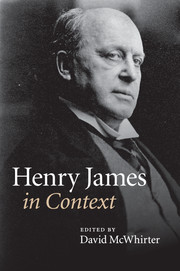Book contents
- Frontmatter
- Contents
- List of Illustrations
- Notes on Contributors
- Preface
- Abbreviations
- Chronology
- Part One Life and career, times and places
- Part Two Historical and cultural contexts
- Chapter 9 Aestheticism and Decadence
- Chapter 10 Authorship
- Chapter 11 Children
- Chapter 12 Consumer culture
- Chapter 13 Cosmopolitanism
- Chapter 14 Courtship, marriage, family
- Chapter 15 Ethics
- Chapter 16 Language
- Chapter 17 Law
- Chapter 18 Manners
- Chapter 19 Media and communication technologies
- Chapter 20 Modernism
- Chapter 21 Money and class
- Chapter 22 Museums and exhibitions
- Chapter 23 Nationalism and imperialism
- Chapter 24 Print culture
- Chapter 25 Psychology
- Chapter 26 Race
- Chapter 27 Realism and naturalism
- Chapter 28 Sexualities and sexology
- Chapter 29 Social sciences and the disciplines
- Chapter 30 Things
- Chapter 31 Time
- Chapter 32 Travel and tourism
- Chapter 33 Urbanity
- Chapter 34 Visual culture
- Chapter 35 Women and men
- Chapter 36 Work
- Part Three Reception
- Further reading
- Index
- References
Chapter 26 - Race
Published online by Cambridge University Press: 05 August 2014
- Frontmatter
- Contents
- List of Illustrations
- Notes on Contributors
- Preface
- Abbreviations
- Chronology
- Part One Life and career, times and places
- Part Two Historical and cultural contexts
- Chapter 9 Aestheticism and Decadence
- Chapter 10 Authorship
- Chapter 11 Children
- Chapter 12 Consumer culture
- Chapter 13 Cosmopolitanism
- Chapter 14 Courtship, marriage, family
- Chapter 15 Ethics
- Chapter 16 Language
- Chapter 17 Law
- Chapter 18 Manners
- Chapter 19 Media and communication technologies
- Chapter 20 Modernism
- Chapter 21 Money and class
- Chapter 22 Museums and exhibitions
- Chapter 23 Nationalism and imperialism
- Chapter 24 Print culture
- Chapter 25 Psychology
- Chapter 26 Race
- Chapter 27 Realism and naturalism
- Chapter 28 Sexualities and sexology
- Chapter 29 Social sciences and the disciplines
- Chapter 30 Things
- Chapter 31 Time
- Chapter 32 Travel and tourism
- Chapter 33 Urbanity
- Chapter 34 Visual culture
- Chapter 35 Women and men
- Chapter 36 Work
- Part Three Reception
- Further reading
- Index
- References
Summary
This moral is that the flower of art blooms only where the soil is deep, that it takes a great deal of history to produce a little literature, that it needs a complex social machinery to set a writer in motion. American civilization has hitherto had other things to do than to produce flowers, and before giving birth to writers it has wisely occupied itself with providing something for them to write about.
(Henry James, Hawthorne [LC-1, 320])‘Why not’, asked Dr Latimer, ‘write a good, strong book which would be helpful to them? I think there is an amount of dormant talent among us, and a large field from which to gather materials for such a book.’
‘I would do it, willingly, if I could; but one needs both leisure and money to make a successful book. There is material among us for the broadest comedies and the deepest tragedies, but, besides money and leisure, it needs patience, perseverance, courage, and the hand of an artist to weave it into the literature of the country.’
(Frances E. W. Harper, Iola Leroy, or Shadows Uplifted)Although not precisely cognates, the extracts above, both of which take up the relationship between social conditions and literary achievement, suggest a possible point of convergence for black and white writers of late nineteenth-century American novels. That is, despite their generic differences, Henry James’s 1879 Hawthorne and Frances E. W. Harper’s 1892 novel, Iola Leroy, or Shadows Uplifted, share the presumption that proper critical assessment of certain novels requires an analysis of the novelist’s or – in the case of Harper’s eponymous heroine – the would-be novelist’s social milieu. For these novels, according to James, ‘it is certain that a considerable observation of the society to which these productions were more directly addressed is a capital preparation for enjoying them’ (LC-1, 321). On this account the feedback loop between a novel and its society turns out to be an aesthetic loop; which is not quite to say that these novels, as aesthetic objects, are nothing without ‘a considerable observation’ of their contexts, but is at least to say that if we are, artistically, to get at what such texts are about, then we will have to engage them in relation to their various contexts.
- Type
- Chapter
- Information
- Henry James in Context , pp. 280 - 291Publisher: Cambridge University PressPrint publication year: 2010



